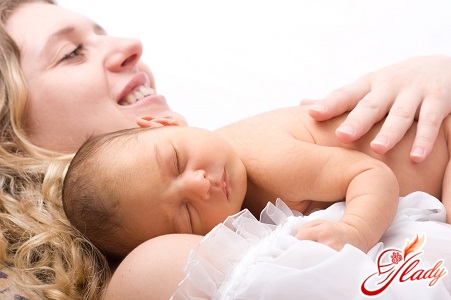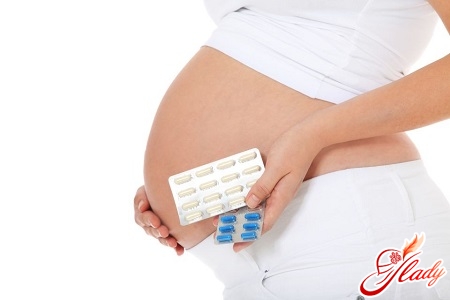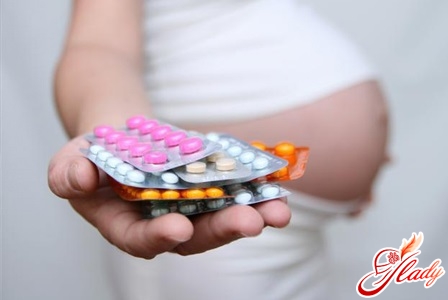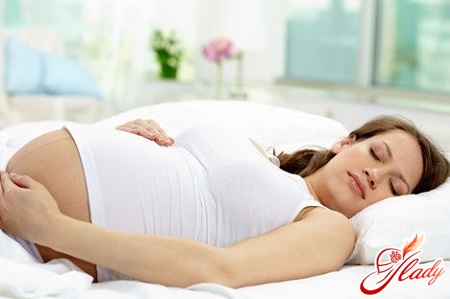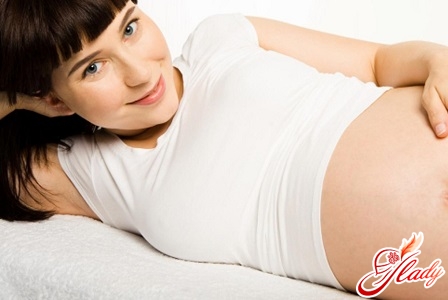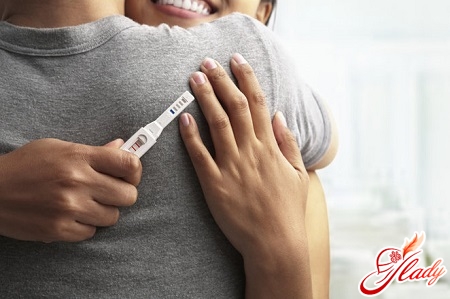
From the day of conception for nine monthspregnancy, all the forces of the mother's body are directed to the maintenance and development of a new life. The child's body changes week by week, improves and grows. The entire period of development can be divided into two large ones: up to 8 weeks of pregnancy, the future baby is an embryo (fetus), and after 8 weeks - a fetus. So, let's consider the stage-by-stage development.
First trimester of pregnancy
Embryonic period of development
- 1st week During the first weekThe fertilized egg moves along the fallopian tube into the uterus. Within a couple of hours after merging with the sperm, it begins to divide vigorously, the number of components in it doubles each time - the process of division takes place. As a result of this process, the so-called fertilized egg is formed, similar to a mulberry berry. The scientific name for the fertilized egg is morula. When the morula reaches the uterus, it attaches to the wall and begins to sink into the endometrium (mucous membrane) - implantation occurs. It takes about 40 hours for the morula to firmly attach. Interestingly, the body has not even formed yet, but the sex of the future baby is already determined by a set of genes in the maternal and paternal cells.
- 2nd week After the attachment of the fertilized egg, itcan be considered a full-fledged embryo. At this stage of pregnancy, the formation of the neural tube begins, from which the brain and spinal cord will develop in the future.
- 3rd week This stage of pregnancy is consideredvery important, because it is now that the rudiments of the bone, muscle, digestive, respiratory and circulatory systems are laid in the child. At the head end of the formed neural tube of the embryo, a thickening begins to form - the future brain. And already from the 21st day, a tiny heart begins to form. The embryo, flat until this moment, begins to bend, folds form on it. In addition, it is at this time that the development of the precursor of the placenta, which is called the chorion, occurs. Subsequently, the villi of the chorion and the mucous membrane of the uterus together form the baby's place, which will nourish the child until the very birth.
- 4th week The beginnings of almost all body systemsalready formed, various organs begin to form: lungs, liver, pancreas, kidneys, the heart begins to beat. In addition, the embryo's head, skin and eye lenses develop. By the end of the 4th week, the chord - the future spine - completes its development, and the rudiments of arms and legs are formed on the sides in the form of "kidneys". The overall size of the embryo by 5 weeks is about 1 mm. At this time, the mother's body begins to secrete the pregnancy hormone - human chorionic gonadotropin (hCG). Hormonal changes are what cause the well-known symptoms: irritability, tearfulness, fatigue and, of course, the absence of another menstruation.
- 5th and 6th weeks During this period of pregnancyThe head of the future child increases significantly, the brain grows and develops in it. The cerebellum, the rudiments of the eyes, nose and ears begin to form. The development of different parts of the digestive tract is active, the liver begins to function. The trachea and bronchi develop. The genital ridges with primary germ cells are formed. The thyroid gland and spleen become noticeable. The chord begins to divide into separate vertebrae, and the rudiments of fingers form on the extremities.
- 7th and 8th weeks At this stage the babyfacial features are outlined, ears and eyes are formed, which by the end of the 8th week are already closed by eyelids. The limbs are divided into sections, further development of the spine occurs. Up to this point, the embryo had a tail, which gradually begins to disappear. All systems of the small organism continue to grow and develop. The child's intestines are in the umbilical cord, but their connection gradually ceases to be strong. By the end of the 8th week, active differentiation of the genital ridges is already underway, the formation of sex begins. The embryo begins to react to unpleasant effects: it shudders, contracts.
Thus, the laying and formation of the mainfunctional systems of the body occurs in the first 8 weeks, which are considered the most critical intrauterine period. Therefore, the embryo at this time is especially susceptible to any adverse effects.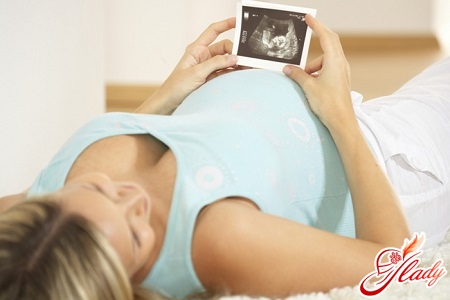 Fetal period of development
Fetal period of development
- 9th and 10th weeks By this time the embryo has passedall the main transformations and acquired obvious human features. From this moment on, it is considered a fetus. More and more often, the child moves its arms and legs, turns its head, and begins to open its mouth. The fetus is too small, so the mother does not feel these movements. By 10 weeks, the external genitalia begin to form. But determining the sex by ultrasound is still impossible due to their tiny size.
- Week 11 The peripheral nervous system is actively developing: receptors are forming in the baby's skin. Now he can purposefully pull his hand away or clench it into a fist.
- 12th week The child spends most of the timesleeps, during sleep he begins to suck his finger. This is a manifestation of the unconditional sucking reflex. The fetus begins to digest, so he opens and closes his mouth, learns to swallow. By the 12th week, an important organ, the placenta, completes its formation. It is where blood exchange between the mother and the fetus occurs, as well as the production of hormones and structural proteins. In addition, the placenta acts as a barrier that retains harmful substances so that they do not enter the child's body from the mother's blood.
- 13th and 14th weeks Fetal digestive organsalready formed, although they will only begin to function properly after birth. The intestines begin to fill with meconium - primary feces, the basis of which is bile. By 14 weeks, the urinary system begins to function, the baby begins to "pee" in the amniotic fluid. The first trimester of pregnancy ends, which is the most important for the formation and development of all organs and systems of the small organism.
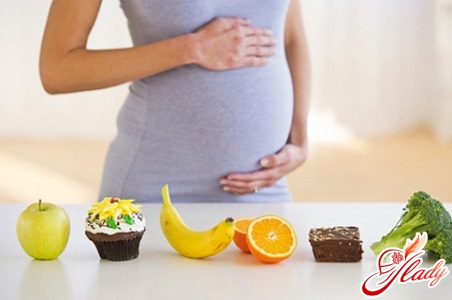
Second trimester of pregnancy
- Week 15 Active development is underway nowbrain. Convolutions and grooves are distinguished. The endocrine system is switched on, the adrenal glands and thymus begin to function.
- 16th week The baby is already showing its firstemotions, he smiles when he is comfortable. Hair growth: the first vellus hairs, eyebrows and eyelashes. The external genitalia are already formed enough for determining the sex by ultrasound.
- 17th and 18th weeksTo the work of the adrenal glands andThe thyroid, pancreas and pituitary glands join the thymus. The sebaceous glands on the skin begin to produce lubrication, which protects the baby's skin from constant contact with amniotic fluid. The baby becomes more active, begins to move from one wall of the uterus to the other. It is at this age that you can feel the first movements.
- 19th week At this stage of pregnancythe nervous system continues to develop, the vestibular system develops. The baby begins to express more emotions. Now he not only smiles, but also frowns if something bothers him.
- 20th and 21st weeks Fingers appearnails and ears acquire the correct shape. Fat begins to accumulate under the skin. This fat is somewhat different from the fat we are used to and is called "brown fat" because of its color; it is almost absent in adults. From this period, the fetus's heartbeat can be detected not only with special equipment, but also with a regular listening tube.
- 22nd and 23rd weeks The baby's lungs begin topreparation for breathing, although until birth, oxygen is supplied to the fetus with blood through the umbilical cord. The baby reacts to external stimuli: loud sounds; too bright light falling on the mother's belly; pressure and vibration. In response to stimuli, he begins to toss and turn, move his arms and legs.
- 24th and 25th weeks Most of the timeThe baby still sleeps, floating in the amniotic fluid, and periodically pushes the mother from the inside and turns. The digestive system of the fetus is fully developed.
- Week 26 The sense of taste develops.The mother's diet affects the taste of the amniotic fluid, the baby winces if it becomes bitter. From about this time, the mother can feel the fetus hiccups. The second trimester of pregnancy ends, the baby's organs and systems are already formed, now they only have to grow and develop.
Third trimester of pregnancy
- 27th and 28th weeks Wrinkles on the face and body begin to smooth out. The senses have already developed significantly, the child can touch, taste and hear, and begins to recognize the mother's voice.
- 29th week Active muscle development is underway, the baby is learning new movements: scratching himself, touching his face, sticking out his tongue.
- 30th week The subcutaneous layer increasesfat, the baby "gets round". The immune system begins to work, immunoglobulins - antibodies that will protect against diseases in the first period after birth - come from the mother through the placenta.
- 31st and 32nd weeks The fetus is already quitelarge, there is not much room for it in the uterus, so it is constantly in the "fetal position". The amount of amniotic fluid, compared to the weight of the child, decreases, all its movements become noticeable.
- 33rd week The baby's sense organs are alreadyare sufficiently formed, he opens his eyes, listens to the sounds of his mother's voice, heartbeat and rumbling in her stomach. He grabs his legs, touches his body.
- 34th and 35th weeks The baby's lungs are already sufficiently developed; if premature birth occurs, the baby will be able to breathe on its own.
- 36th week The vellus hair on the fetus's body begins to disappear, and active preparation for childbirth begins. The liver accumulates iron, which is necessary for hematopoiesis.
- 37th week The baby's weight is almost equal to its birth weight. The baby is now gaining about 15 g of fat daily. The brain and skull are growing most actively.
- 38th week The fetus takes its final positionposition before labor, the part presenting to the exit (in most children this is the head) descends, it is ready to be born. At this stage, you can feel that the baby has become quieter, the belly has dropped lower, it has become easier to breathe. All these are sure signs that the baby will soon be born.
- 39th - 41st week During this time the baby should be born, it is fully formed, its organs are ready to work independently
- 42nd week If the term has approached 42 weeks of pregnancy, most likely it is calculated incorrectly. But it is still worth discussing with your doctor the possibility of artificial stimulation of labor.
If you ate well during pregnancy andIf you took vitamins and avoided stress, then your baby's development at all stages will most likely go smoothly and there will be no serious health problems for the baby.




